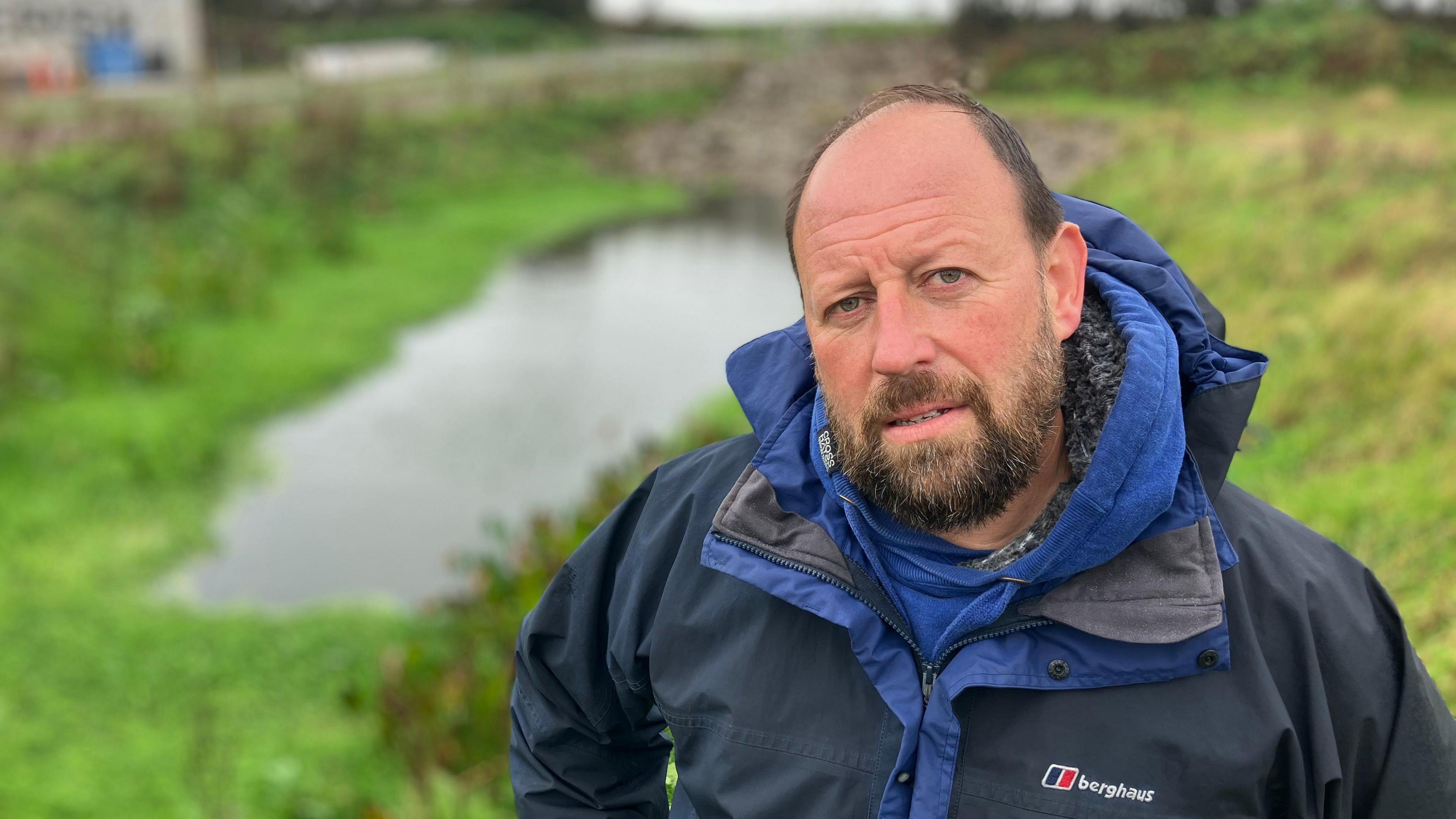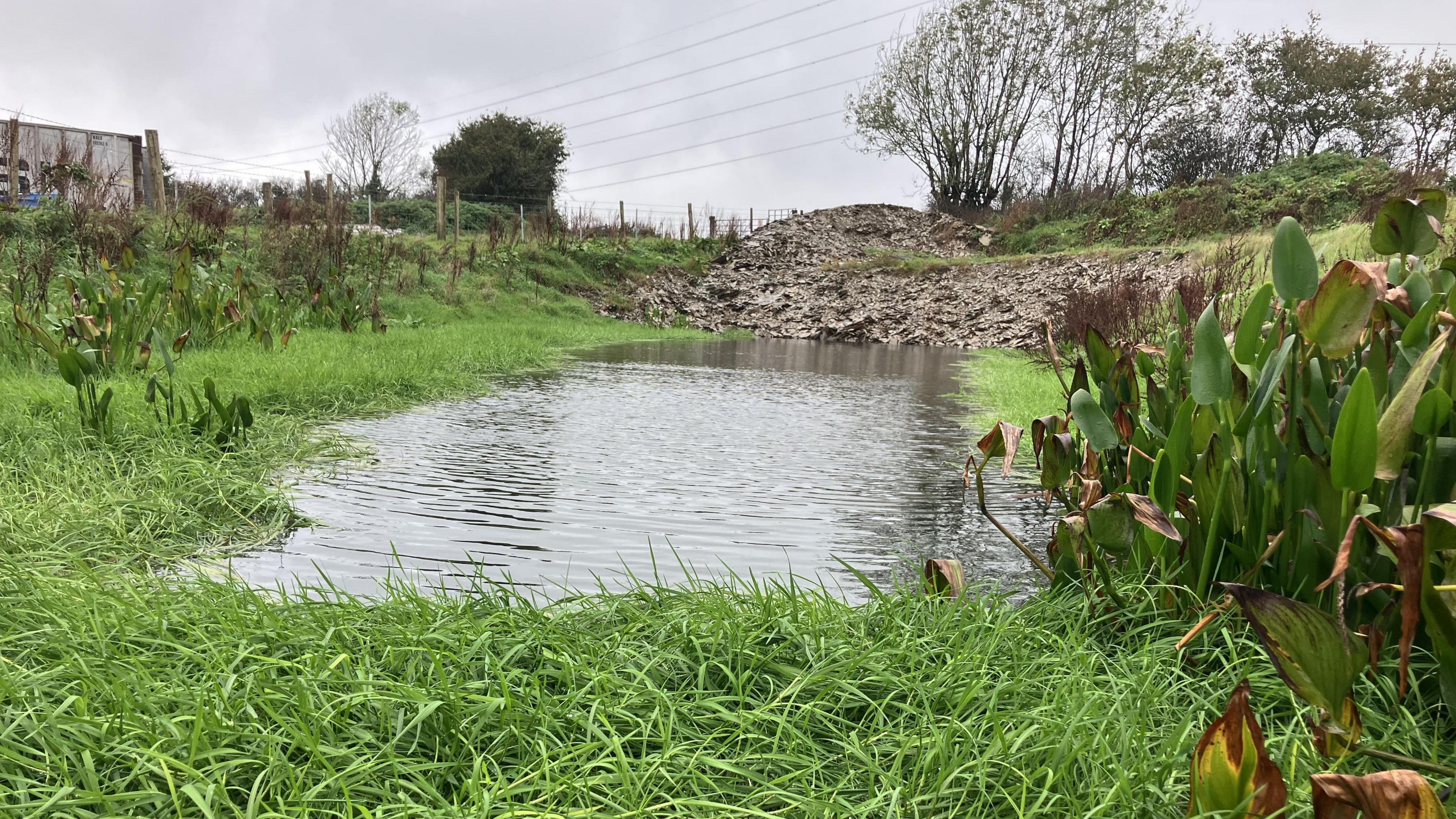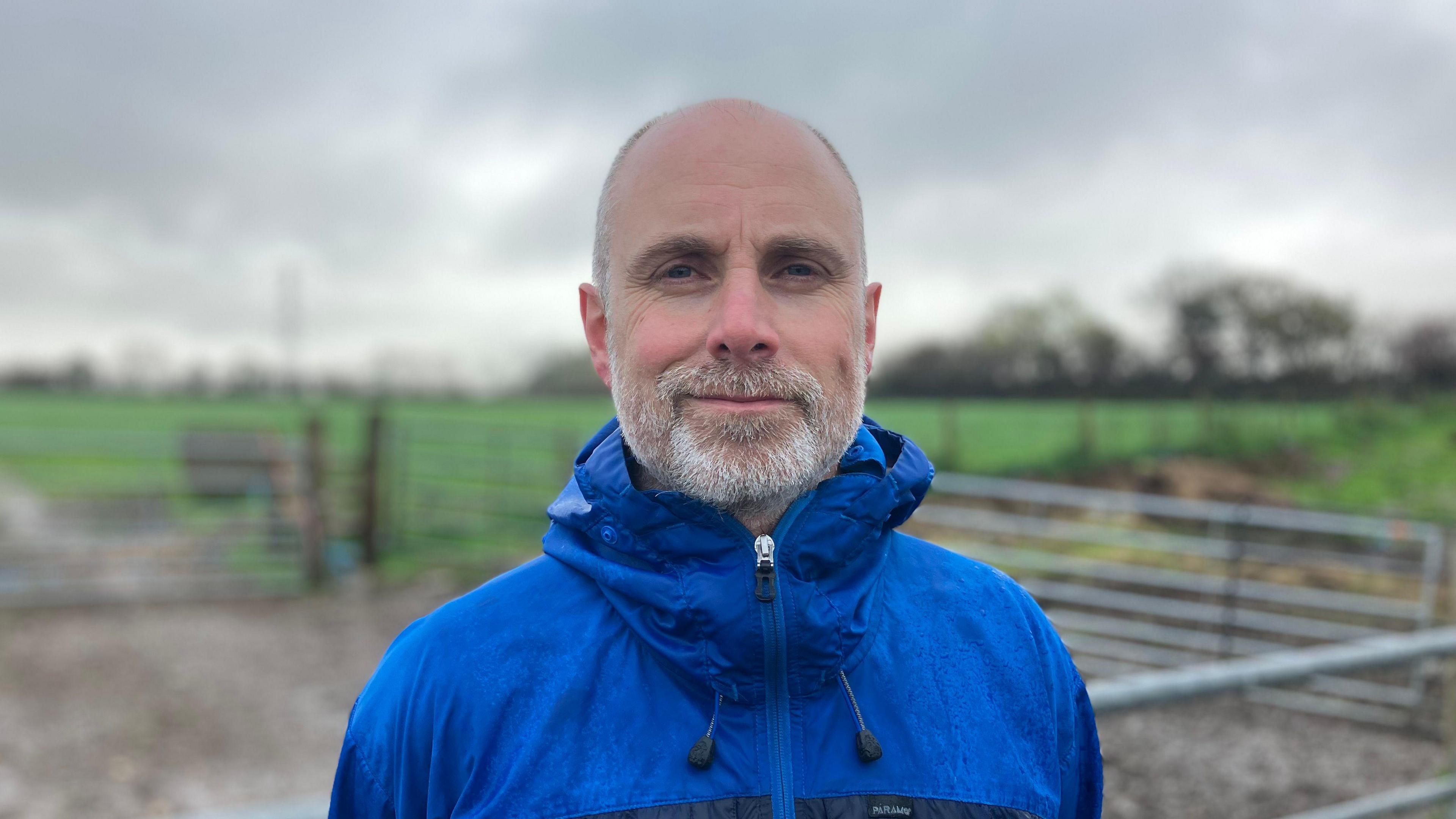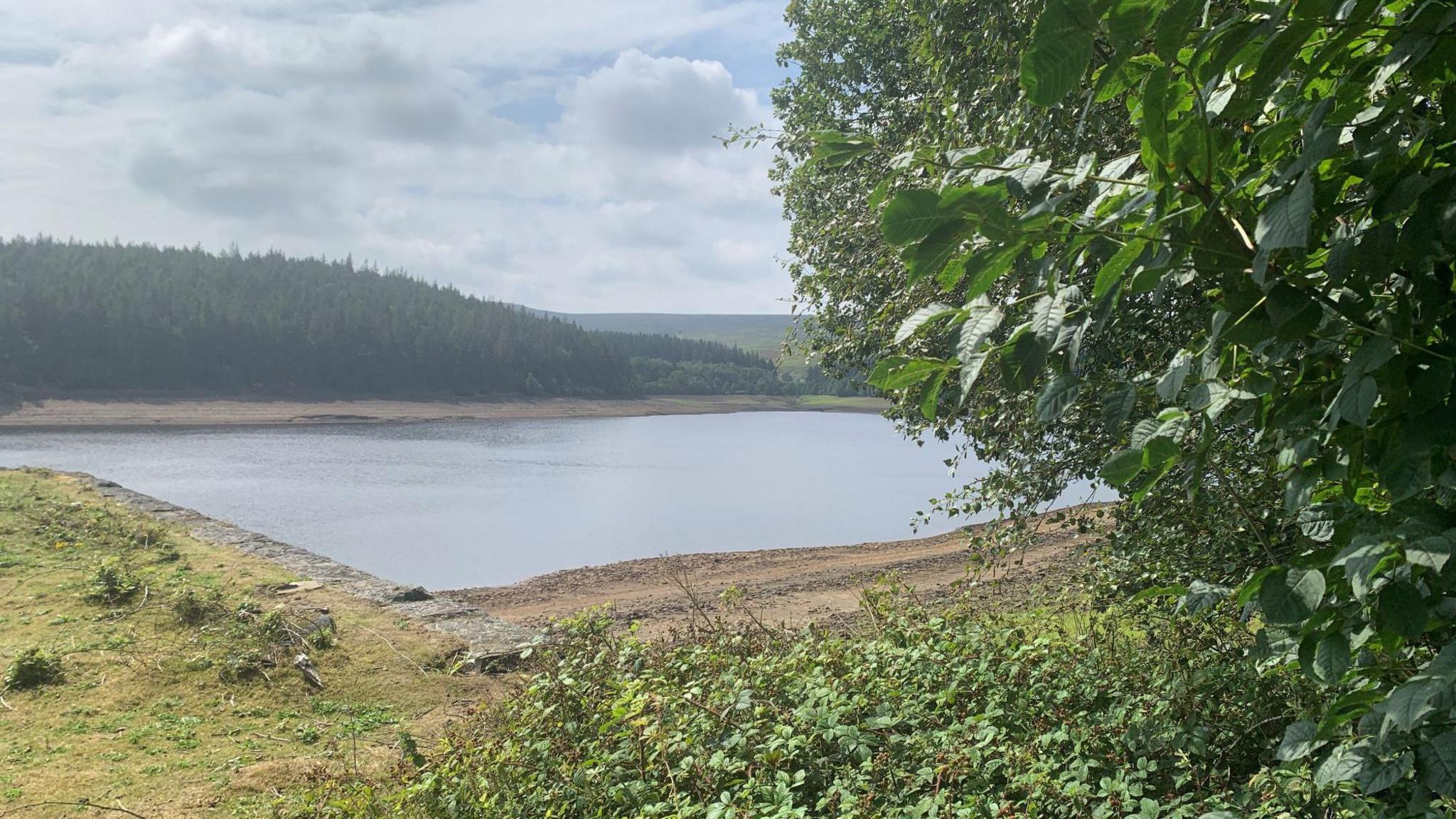Can 'water batteries' help farmers tackle drought?

Will Luke created a pond on his farm near Plymouth to help improve resilience to drought and flooding
- Published
Rainwater used to surge through Will Luke's dairy farm whenever there was a downpour.
He used to watch it flow away but concerns over "drier and drier" summers led him to build a storage pond allowing him to put that water to use - particularly for livestock.
"Once it leaves the farm, it's no good to me. If we capture the water we can get more use out of it. We're much more resilient," said Mr Luke, whose farm is near Plymouth, Devon.
The Westcountry Rivers Trust said ponds and wetlands were insurance for "times of need" including droughts, and it was now leading a €8m (£6.95m) project on how the so-called "water batteries" could be used to create a "smart water grid" across Europe.

Ponds on farms can help build resilience to drought and flooding
The trust said it was hopeful the grid could also work in low rainfall areas such as Spain and Malta.
Dr Laurence Couldrick, chief executive officer for the trust, said the need for more water storage on farms would be "critical for managing drought".
"We can't continue just getting rid of our water as fast as possible," he said.
"We have to be able to hold on to it when it rains and use it during the summer months."
Earlier this year, the Met Office confirmed summer 2025 had been the hottest on record in the UK.
South West Water (SWW) imposed a hosepipe ban in Cornwall in August 2022 before it was extended to large parts of Devon in April 2023.
Research into how a network of features such as ponds and wetlands could form a "smart water grid", external is the focus of the work led by the trust, alongside 21 other organisations in 13 European countries.

Dr Laurence Couldrick says a network of "water batteries" can help prone parts of Europe
Dr Couldrick said: "This sort of approach works across Europe.
"We've got examples in Spain where they had such significant droughts they had to chose between agriculture and tourism.
"We have to become more resilient as a society and we have to become more resilient in agriculture."
The four-year project is funded by the European Union's Horizon Europe research and innovation programme.
Mr Luke said how farmers adapted to more severe weather was something many were thinking about.
He said water batteries, like the one he built two years ago, could be part of the answer.
Follow BBC Cornwall on X, external, Facebook, external and Instagram, external. Follow BBC Devon on X, external, Facebook, external and Instagram, external. Send your story ideas to spotlight@bbc.co.uk, external.
Related topics
- Published11 March 2024

- Published24 September
